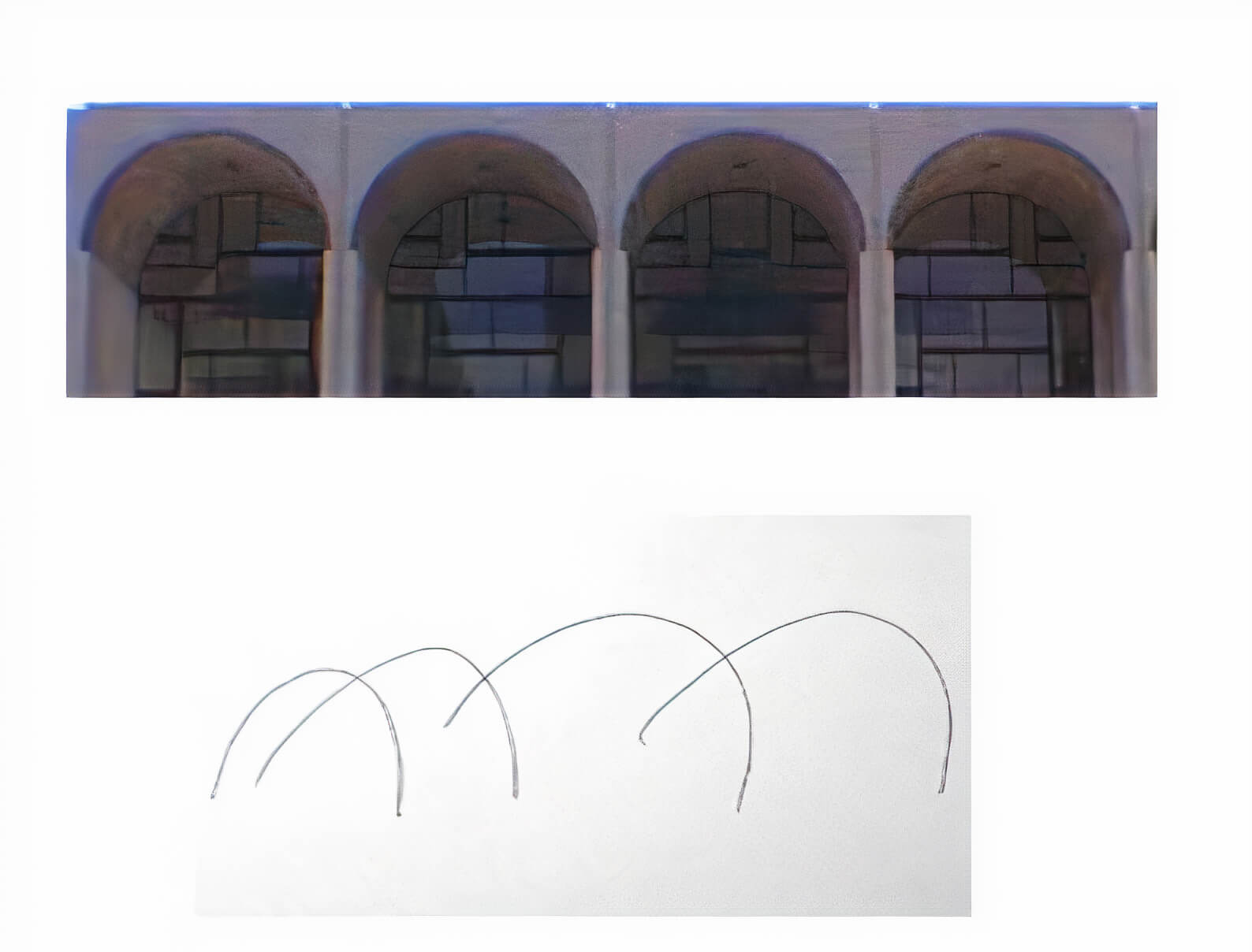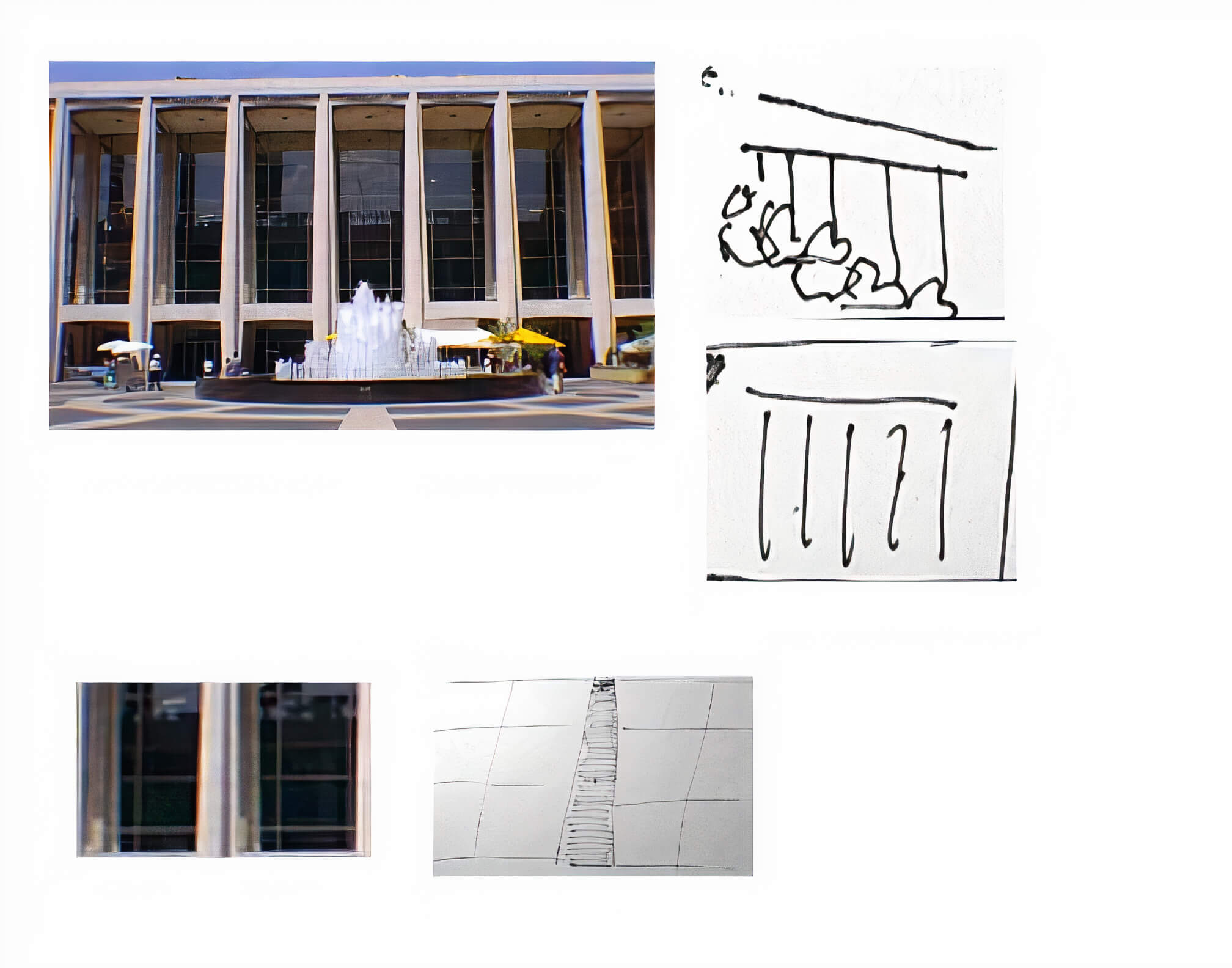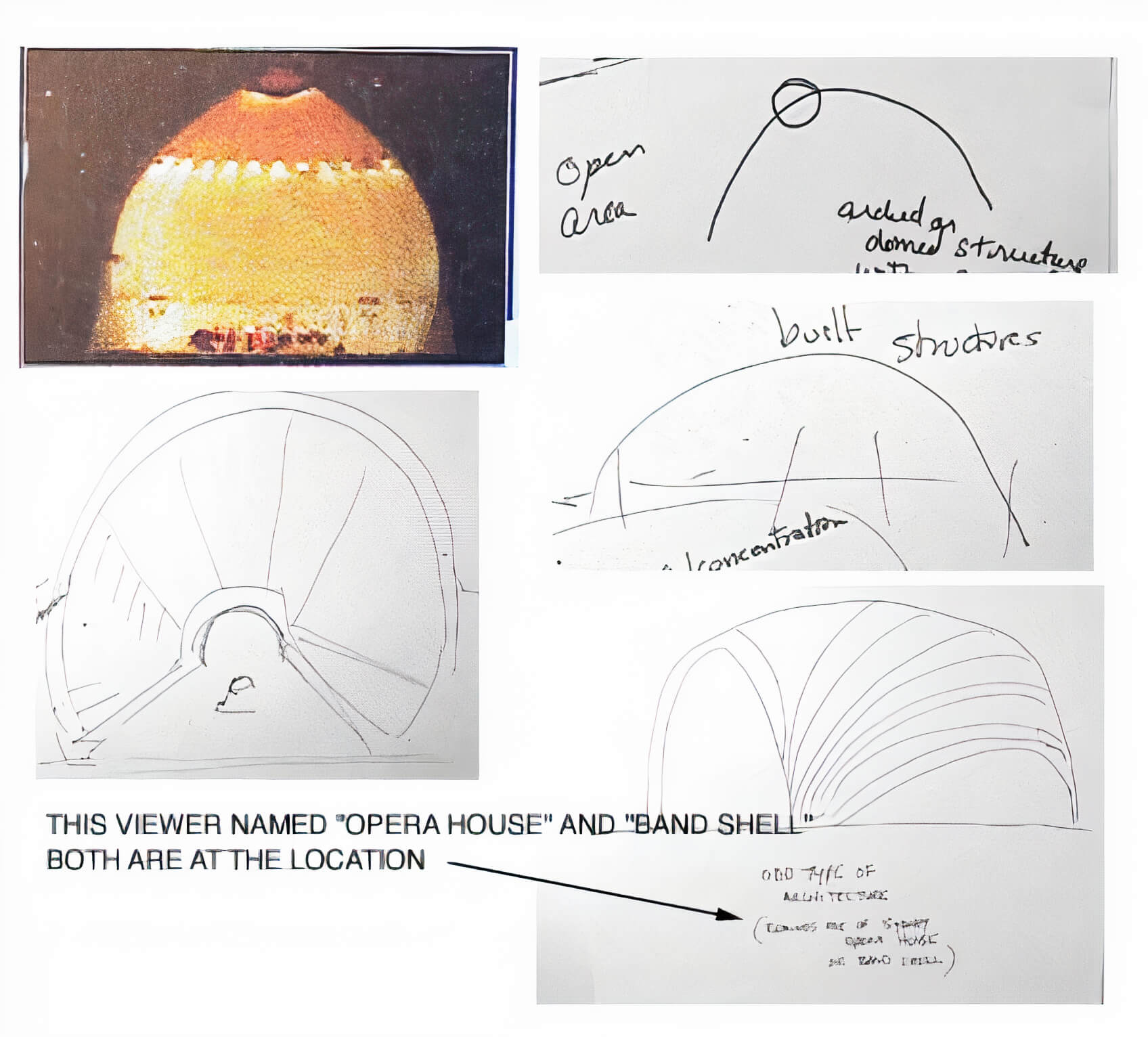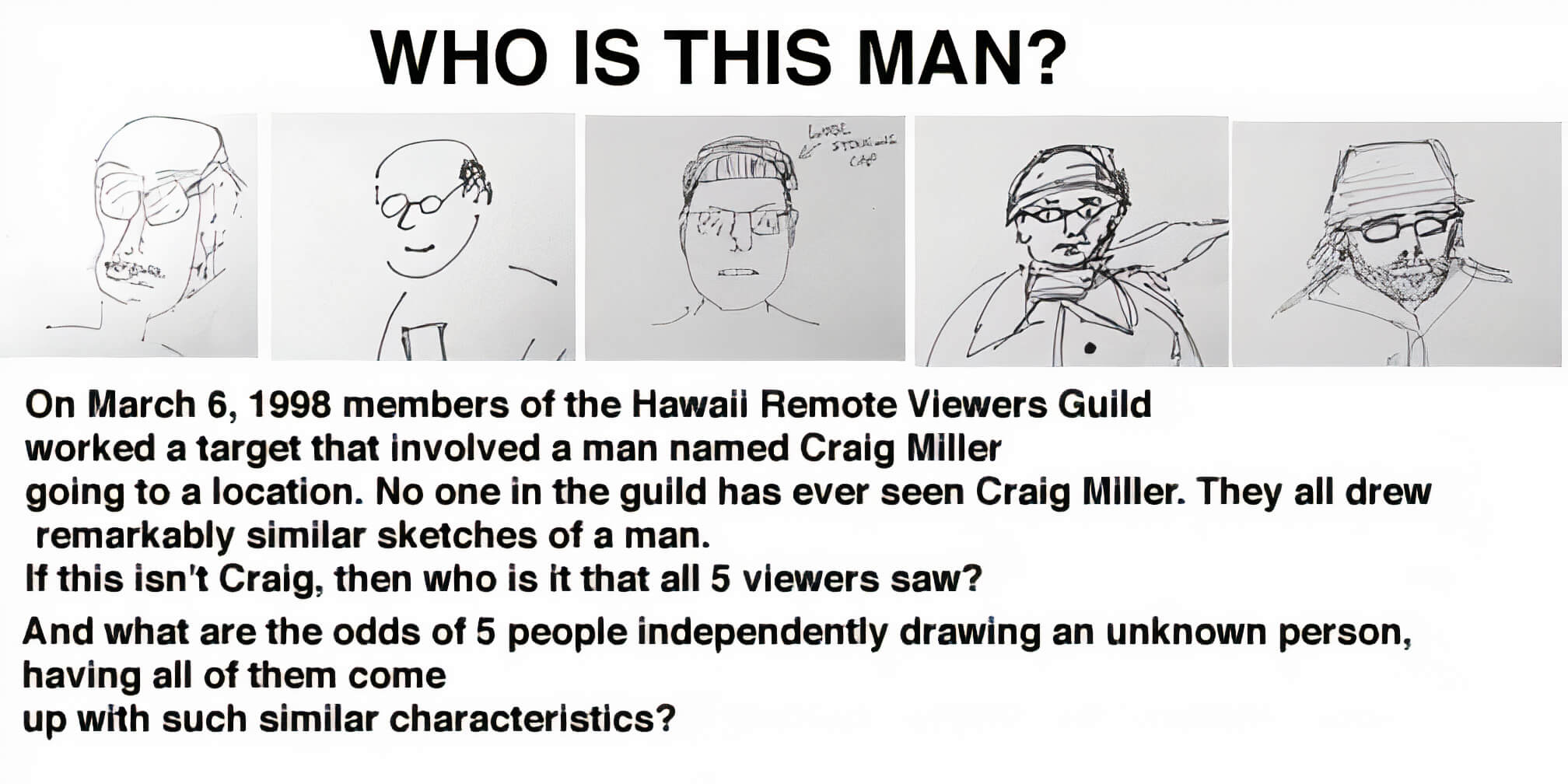Lincoln Center Revisited
by Dick Allgire
July 3, 1998
In March 1998 Fate magazine conducted a remote viewing test. It was what they call a “beaconing” experiment. A person was sent to a location at a specific time and remote viewers were challenged to describe that location. The Hawai’i Remote Viewers’ Guild worked the target and sent in data. The target was Lincoln Center, New York City. Our group was mentioned in the article, because one of our viewers correctly sketched a fountain that was present at the site.
A closer look at the data shows a number of the Hawai’i viewers got amazingly detailed images of the target site.
There is something that skeptics, and even those who want to believe, must learn about remote viewing. When you give a target to a remote viewer, the viewer goes to the location. The viewer does not just perceive an image on a photograph, or even a location as seen through the lens of a camera. The viewer goes to the site. The viewer perceives everything that is there in a 360 degree reality. So the viewer will perceive all kinds of different things about the site.
So when the Texas Remote Viewing Test puts up a photo of the light pole at Indianapolis Motor Speedway, they must be prepared for the viewers to bring back data about the speedway, not just the pole itself. Especially student viewers, who are more apt to get sidetracked by interesting things along the way.
The feedback for the Fate magazine target was a photo of a fountain in front of a building at Lincoln Center. But if you go to Lincoln Center you’ll see a whole lot more than just that fountain and one building. Let’s say you arraigned a meeting. “Meet me at the plaza at Lincoln Center.” You go there and sit by the fountain. But your attention could also be drawn to the very unusual architecture of the bandstand. You might look at the Metropolitan Opera Hall, which is also there, or you might look at the Avery Fischer Hall.
I’m going to make the case that members of the Hawai’i Remote Viewers’ Guild went to Lincoln Center and brought back lots of very specific, detailed information and images about that location. Fate Magazine mentioned one sketch by one viewer; a fountain. The judges at Fate were somewhat myopic in their analysis. This is understandable; they had at least 80 submissions, and they don’t really understand how remote viewing works, or how to analyze RV data. There were looking at only the fountain. In fact, Lincoln Center encompasses a number of very unique buildings, and members of the Hawai’i Remote Viewers’ Guild described aspects of each of these buildings.
At Lincoln Center there is the Metropolitan Opera House. It has distinctive rounded arches at the top, which were described and sketched by a number of the Hawai’i remote viewers. It also has unusual panes of glass, which are offset in an irregular pattern

In addition to the sketches, one viewer described “stained glass,” which is there. And another actually wrote “opera house.”

At the Lincoln Center there is a building called Avery Fisher Hall. If you are at the fountain in Lincoln Center you need only to turn your head slightly to view this building. Likewise a remote viewer sent to this site could be expected to pick up impressions of Avery Fisher Hall. This building also has distinctive lines, which were sketched by Hawai’i remote viewers.

At the Lincoln Center there is a building called The Lincoln Center Bandstand. It is a very unusual structure, one that any tourist would notice, and likewise something that would attract the subconscious awareness of a remote viewer on site.

And as we know from the Fate Magazine article, at the Lincoln Center there is a fountain. We were given credit for Dennis’ sketch of the fountain. What was overlooked was that Yaana also drew and described a fountain.

In the article it was mentioned that the “beacon” person was carrying a camera. One of the HRVG viewers noted that fact in her session.

And finally there is a mystery. No one in Hawai’i has ever heard of or met Craig Miller, the man who acted as the “beacon” for the Fate Magazine experiment. We’re not sure if these images are at all what Craig looks like, but what are the odds of 5 people sketching someone close enough to match a police sketch artist version of the same person? Does anyone know this man?
